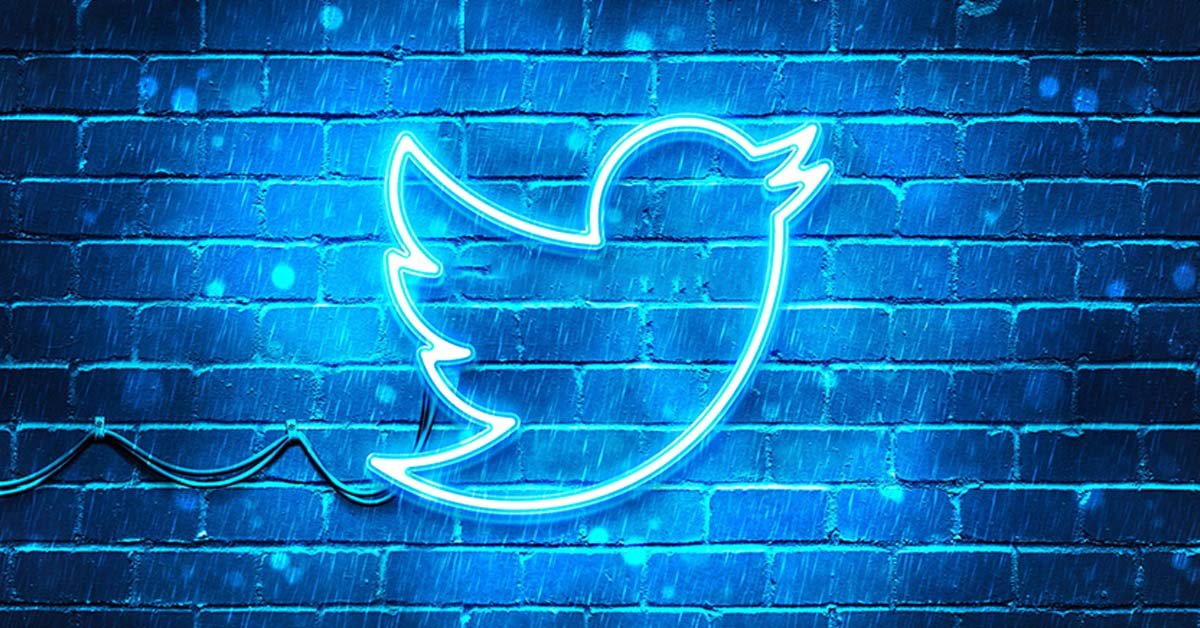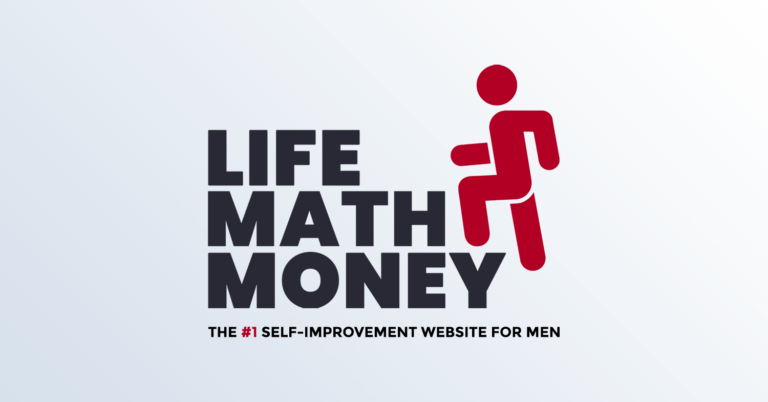After writing and being on Twitter for over a year and a half (and gaining over 100,000 followers), some trends and observations regarding the behavior of people come to light:
1) People are of two types: Doers and mental masturbators
And the latter is much, much more common.
You see all of these people online for “information”, but very few are actually doing anything with it.
They enjoy reading about mindset and productivity, and once they get their dopamine hit, they go back to watching prank videos on YouTube for … more dopamine hits.
Now, while there are long term advantages of reading the right things (it changes your mindset), much of it is the same as entertainment if you never ever plan on making some moves.
Remember the ratio: 20% reading, 80% action.
In real life, it’s always easy to tell who’s a doer and who’s a talker: talkers keep talking, talking, talking.
“I’m gonna do ____.”
“I’m gonna be a rockstar.”
“I’m gonna start a company.”
You’ll constantly hear them tell you what they plan to do, but you’ll never actually see them start something.
They’re always “trying to lose weight”, “thinking of startup ideas”, “thinking about doing ____”.
Doers, on the other hand, just do. They may mention what they’re doing once or twice, but you won’t typically find them blabbing about what they’re planning to do.
They’ll do it, and after a while, you’ll see the results.
Much of the world is unaware of what the doer is up to until he has actually made visible progress with it. (An additional benefit of this trait is that it prevents jealous people from demotivating you as you put in the work.)
In short, doers get their dopamine from doing things, talkers get their dopamine from talking about doing things. Since social media is primarily a place to talk, most people on there are talkers.
While we’re on the topic of talkers…
2) The 10,000 questions guy is a self-sabotaging idiot
You’ll come across these people every once in a while.
They have 10 million questions, but you never see them move forward onto the action spectrum.
Anyone who’s been in sales knows precisely what I’m talking about and is nodding his head in agreement.
The 10000 questions guy is the guy who will waste your time over details that are irrelevant at best – someone asking you questions about advanced options arbitrage (“collecting information”) when they haven’t even bought a stock in their life. (They likely don’t even have a trading account opened yet.)
These people are losers whose time is entirely worthless, so they assume that your time must be worthless as well. So they don’t hesitate to ask you tens of basic Googleable/irrelevant questions. It’ll be quite evident that they’ve put in no research into it themselves.
Let’s say that you tweet that eating a high protein diet is healthy.
“Can you recommend some vegetarian sources of protein?” (Question can be Googled we’ll give them the benefit of the doubt.)
“Sure, eat more dairy, paneer, eggs, lentils, pulses, and legumes.”
“But what about broccoli?” (Another simple question demonstrating that they’ve literally never researched this topic.)
“Broccoli is good.”
“And ___, ___, ___?” (you get my point)
“…”
“Can you send me a diet chart?” (Translation: I think your time is of no value, so you might as well act as my personal assistant.)
(As a joke, ask them to pay you. “Why will I pay you if I can find it online for free?” – then why are you asking me?)
These people are not the kind of people who will ever actually eat right. (Or do anything for that matter.)
But they will waste your time to “collect information” about the “best diet” and then go and eat instant noodles as usual.
You’ll find this type of person everywhere. They want to better themselves, but they lack the discipline to do a damn thing, so they replace action with a quest for finding the “perfect” system (which doesn’t exist, so they don’t have to do anything).
General observation: People who are interested in something do their research, and only ask you questions when they couldn’t find the answer themselves. Their questions will be precise and non-obvious. They will not ask you things that can be found out by a 10 second Google search.
Actionable Recommendation: Ignore people who ask lots of questions that they could have answered with a simple Google search (you can give people some leeway offline, but online – just ignore them.). They’re disrespecting you by implying that they think your time is worthless. By answering them, you are confirming their assertion.
3) There’s a community (echo chamber) for everything
On Twitter, there’s a community for EVERYTHING.
And when I say everything, I mean EVERYTHING.
Let’s say you’re a vegan…
You’ll find a community of people talking about how it’s the greatest thing in the world, how all other diets are wrong, and how everyone who isn’t a vegan is an evil, animal killing maniac.
If you’re a carnivore eater…
You’ll find a community of people talking about how it’s the greatest thing in the world, how all other diets are wrong, and how everyone who isn’t a carnivore is a gullible, anti-evolution idiot.
The same goes for politics, climate change, etc.
It’s very easy to find yourself in a self-made echo chamber (because you pick who you follow), where you feel you’re right because everyone around you is saying the same things. (The consensus is truth fallacy.)
On social media, you can find a tribe for anything, and most people aren’t interested in improving their mental models when they can just find the right herd for their current opinions.
Every once in a while, they’ll argue with (read: battle) those with differing opinions, and then bond over their “comradeship”, making the community even more invested in its beliefs.
Actionable recommendation: This isn’t always a bad thing. Just make sure you pick the echo chambers that help you grow into who you want to be, instead of finding one that makes you feel good about where you are today.
You’ll do much better in the self-improvement echo chamber than in the “fat is beautiful” echo chamber.
4) There’s no greater fool than he who argues on the internet
Think about it, if you believed that your diet choice is the right one, why would you argue with people on Twitter about it?
You’d just follow it, and your health and fitness would show the difference.
Assuming you’re not trying to build a following around that topic, why would you waste your time arguing with random people on social media about it? It doesn’t make sense.
And it’s not like you’re convincing anybody by arguing with them online.
To give you an extreme example, Twitter has a community of fortune tellers (yeah, you read that right – it’s called Numerology, and it’s the stupidest thing that someone could fall for), and every once in a while, someone will point out that you’d have to be extremely gullible to fall for it. (I’ve been guilty of fighting with them as well).
No one on the internet who is dumb enough to fall for fortune-telling is going to suddenly start acting rationally and walk away because you said fortune-telling is a scam.
They’re going to attack you for being negative about something they’re so invested in, and because they’ve now attacked you, they’ll feel even more bonded to their “cause”, in other words, you made them believe in fortune telling more, not less.
(Cognitive dissonance can be a bitch, especially to those who are unaware of it).
Actionable recommendation: Don’t argue online, or even offline in most cases. If you’re right, keep doing what you’re doing, and let the results make the noise.
You don’t have to prove to the world that strength training is effective, you just have to do it. Your body will demonstrate the truth.
(P.S. if you’re interested in starting strength training, I recommend getting a copy of this book.)
If you’re trying to build a following, fight large accounts when provoked. It engages people and brings you easy attention.
5) You will get idolized
If you are popular enough, people will idolize you. People will rob you of your humanity and start thinking of you like you’re some demigod.
Look at Michael Jackson – look at how many people worshiped a singer. Look at Oprah. So many people act like she’s the oracle or something. Look at Kurt Kobain (the lead singer of Nirvana, also a drug addict heroin junkie who committed suicide) – look how many people idolize them. Likewise, Tony Robbins, Donald Trump (god or devil – same thing), Kanye West, etc.
(Not discrediting their art, just making a point.)
If you’re good enough, people will create some sort of exaggerated mental image in their heads about you. They forget that you are also a mortal, a human being.
For example, I’m a man in my 20s – I’m an entrepreneur, a qualified chartered accountant, and a financial consultant. LMM started as a hobby where I write about money, health, productivity, discernment, and knowledge – the things I know about and I have experience with (and I’m continuously learning more about and getting better at – no one is a “finished work”).
I share my observations and what I learn from my experience, experiments, and mistakes (so you don’t have to!).
For example, it’s highly unlikely you’re running a large scale Twitter account, but now you get to learn what I learned from running one!
Sometimes, I struggle with my day too. And I wonder why anyone even listens to me.
I am not a “guru” or a “life coach” and I have no interest in being one (but I still get idolized, and I don’t like it). My writing is nuanced, observant, and non-polarizing (except for the purposes of humor).
The only reason people read me is because my work adds value to their lives. Why else would someone be here? I’m not a hot girl with a low cut shirt (looking at you, Twitch streamers), I’m not a public figure or a celebrity – if you’re reading this, it’s because of the mindset, ideas, and motivation – not because of some preexisting interest you have in me.
(And I’ve talked to other people with big Twitter accounts as well – they get forcefully idolized as well.)
If you’re popular anywhere, you’re going to get idolized to some extent (some more than others – see the next point).
Recommendation: Do not worship man. Especially a man who is still alive.
Do not get jaded when people post pictures of supercars, beaches, and babes, and claim to have all the answers. (They’re usually trying to sell you some get rich quick scheme or course.)
At the end of the day, everyone is human. There are no gods among mortals.
Your favorite celebrity, talk show host, comedian, sportsperson, writer, artist, actor, etc. – they’re all just humans. Just humans.
They may have their talents, their experiences, and their charm and charisma – but they’re flesh and blood nonetheless.
Don’t blow it up in your head.
Michael Jackson was just a guy who could sing and dance, not someone to be worshiped like a god.
(And I’m not going to lie – I used to idolize people too. I only really figured this one out after I myself started getting idolized by people.)
In short: No one has all the answers.
But not everyone is honest enough to admit that, which brings me to…
6) Personal branding is a deceitful scam
Personal brands are people who rely on their social image for making money – this includes politicians, talk show hosts, gurus, influencers, “experts”, and internet celebrities.
I’m calling them deceitful because of the way they embrace the idol worship.
They understand the natural tendency for people to blow popular people up in their minds, and they exploit it for their personal gain.
They use the attention to build “authority”. They act like they know everything, and employ tactful rhetoric to engage their “fans”.
I’m not saying all of them are scheming (some of them are definitely honest), what I’m saying is: many of them act a certain way and say certain things to curate a particular type of public image (usually one that makes them maximum money or gets them the most votes), while claiming to be honest and “authentic”.
Think about it: if your income or job depended on your public image, you would be extra careful with what you say and present to the world as well.
And you would make a big deal about being honest too (dishonest people often do).
It’s like how politicians will sleep with their secretaries and a few dozen prostitutes on the side, but they’ll deliver you a speech on the importance of religion and family values.
Throw in a picture of them with their wife and children, and you’ve got your “ideal citizen”.
General rule: If they depend on your money, votes, or viewership for survival, they’re not going to tell you the truth, they’re going to tell you what you need to hear to meet their ends.
This is why I don’t trust celebrities, politicians, or news channels, and neither should you.
7) You will be attacked out of jealousy and strategy
Some people will hate you because they are jealous. They love what you’re doing, but they wish that they were the ones doing it, and that envy makes them hate you for being what they want to be.
It takes far more maturity to be inspired than it does to be jealous.
Think Justin Bieber. People hated that kid back in 2010. The internet went wild, calling some teenage kid girly and gay. It seemed like the entire world was out to bully a 16-year-old kid. (See point 11a for more on this)
The reality is, people were just jealous. They were jealous of the fame and the money and the magazine pictures. Every single one of those haters would switch places with him if they could.
They loved where he was, and they hated him not because of something he did, but because they weren’t the ones who were there.
Others will attack you as a matter of strategy.
They don’t hate you or anything; they’re just playing the game. They’ll tweet at you with crazy and wild accusations, willful misinterpretations, and seemingly innocent remarks.
They want you to reply to their comments, as that brings them more attention and followers.
It’s a dilemma: If you don’t answer them, they present it as an admission of guilt. If you do answer them, you play right into their hands and give them what they wanted in the first place: attention, engagement, and followers.
Personally, I just block them. Things are going too well for me, both online and offline, for me to be fighting with people online.
Leave internet fights to the losers.
The one exception is when the person attacking you is sufficiently large themselves, so by going into that fight, you have something to gain.
8) Outrage is a big business because it’s viral by nature
Alright boys, listen up, I’m about to tell you a highly profitable business model, and I’ll only tell you once.
Step 1: Create a website and a company, and end it with the word “news”. The word news is essential because it gives you “authority”.
Step 2: Find some spicy nonsense, and tap the word “opinion” on it.
Step 3 (important): But before you hit publish, make sure the headline is completely misleading.
Make the opinion piece sound like a report.
Example:
“I once overheard two science graduates discuss that grasshoppers may be a source of protein for humans and I want to believe that is true.” becomes “Scientists agree that all sorts of bugs and insects are a great source of protein and should be eaten every day, preferably with soy milk.”
Remember, the more polarizing and eye-catching the headline, the better.
Step 4: Fill the article up with ads. The more the merrier.
Step 5: Put the link to the article up on social media and wait. (And repeat!)
If you did the above 5 steps right, you should be making a bunch of money right now.
People will read your headline, get pissed, and click your article.
Then they will skim through the article (read: see some ads and give you money) and then link it back on their social profile, commenting about how incorrect that article is.
Their friends will see their post, read the headline, and click!
And voila! You’ve created a cycle that will perpetuate itself and make you money. Woo hoo!
9) Twitter is a great way to promote your product and website
Unlike most social media platforms where you connect with people you already know (such as Instagram and Facebook), Twitter lets you connect with people you don’t know over ideas.
In other words, Twitter is a social network for people in your future (like-minded individuals), whereas most other social networks are for people in your past (friends).
This makes Twitter a great way to promote your work and your website because those who are interested in your work will eventually find you.
You can reach millions of people and connect with them if you stick to it for a while.
(For example, Twitter is the main social media I use to promote this website!)
The downside is that some people and brands are trying so hard to get some visibility that they create incredibly one-sided and polarizing content hoping that it’d go viral. (“There’s no such thing as bad publicity.” – see point #8.)
10) Twitter is ultra-addictive
Twitter is extremely addictive. Every tweet takes 10 seconds to consume, and there’s always a new one coming every 10 seconds.
The dopamine hits leave you coming back for more.
This is notably worse for people who use Twitter multiple times a day (writers, bloggers, etc.). You’re on Twitter to tweet, link articles, etc. numerous times a day, and before you know it, you’re clicking that app button unconsciously.
I’m not sure if Twitter was designed to be addictive, or if it just turned out that way, but in either case, the result is the same.
I use some automation tools to reduce repetitive Twitter usage, but dealing with some addiction is the cost of using the platform.
11) Social Media exposes human nature
Social media reduces the frictions and limitations of the real world and reveals the true programming of humans for everyone to see (which basically this article is about).
Some interesting macro trends:
a) People in large groups mobbing people they don’t like
This is how our ancestors dealt with things. If everyone doesn’t like something, or if someone was too controversial, they’d be killed by the tribe.
“She’s weird and different from us” = “She’s a witch” = “Let’s tie her to a tree and light it on fire.”
Now you see groups doing it online, where they try to mess up the real-life reputation of people they don’t like online.
What, you said something our group disagrees with? You’ll pay for this.
b) Men forming communities around hobbies
Be it self-improvement, TV shows, video games, or bodybuilding – you’ll see men build communities around it and bonding over it.
Men tend to bond over their hobbies.
Women do this too but to a much lesser extent. Women seem to be more interested in attention and validation.
To female readers: if you think this is a generalization – that’s because it is. You could be a valid exception. See your Instagram account for more details. This brings me to:
c) Women become sluttier for attention
The female psychology loves attention. It makes them feel valued. This can easily be observed with the millions of half-naked perfect makeup “candid” selfies and ass shots women post on social media, consciously or subconsciously desiring the likes and attention it brings them.
Unfortunately, because the attention is not real or intimate, it always leaves them unfulfilled and hungry, so they keep coming back for more.
Conclusion
Most people are online not to improve, but to talk about news, politics, and of course, their favorite celebrity. (They don’t use the platform, they get used by the platform.)
I do not see much changing in the social media sphere, people wise.
Our DNA isn’t changing, even though our environment (the rules of the game) is.
Women aren’t going to stop posting semi-naked pictures online, men aren’t going to stop buying the latest get rich quick scheme, and the masses aren’t going to stop falling for outrage and junk. Not anytime soon anyway.
Few people (~2%) possess the self-awareness to make good long term decisions and operate in the present environment – where everyone is trying to exploit your instincts – from marketers to governments (to meet their own, and often non-obvious ends).
The best course of action for a man looking to rise up is to focus on himself, inward, and on action, instead of on perpetually collecting the best information, looking for a pseudo-god to worship, and reacting to garbage online.
Until next time,
Yours truly,
Harsh Strongman











